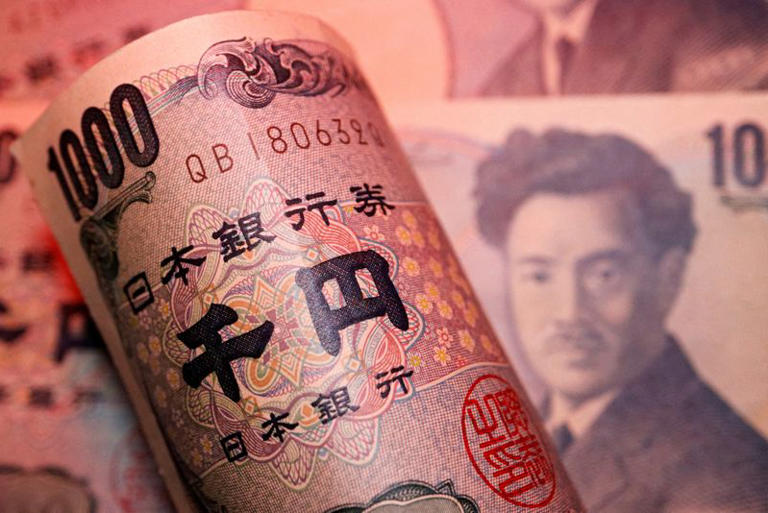On Monday, the Japanese yen strengthened notably, reversing earlier declines and reflecting a shift in market dynamics due to escalating tensions in the Middle East. The yen’s resurgence was driven by a surge in demand for safe-haven assets, as geopolitical uncertainties spurred investors to seek stability in the Japanese currency.
The catalyst for this shift was a deadly rocket attack in the Israeli-occupied Golan Heights, an incident attributed to Hezbollah, a Lebanese armed group. The strike has prompted Israel and the United States to react, intensifying the geopolitical landscape. As a result, investors flocked to the yen, traditionally viewed as a safe-haven currency during periods of global instability. The yen’s rally underscores how geopolitical events can significantly influence currency markets, especially in times of heightened uncertainty.
Initially, the dollar experienced gains of up to 0.36% against the yen, as global equity markets showed signs of recovery from Friday’s sell-off. However, this upward momentum was short-lived. By the end of the trading day, the dollar was down 0.17% at 153.51 yen, having earlier dipped as much as 0.35%. The yen’s rebound highlights the volatility and fragility of current investor sentiment, especially in the aftermath of a turbulent week for tech stocks. On Thursday, the dollar had dropped to 151.945 yen, the lowest level since May 3, marking a significant shift in its recent trajectory. The currency ended the week with a 2.4% decline against the yen, its worst weekly performance since late April.
The sudden shift in the dollar’s performance can be attributed to a combination of factors, including the market’s reaction to geopolitical tensions and broader economic indicators. Shinichiro Kadota, a currency and rates strategist at Barclays in Tokyo, noted that the rally in the dollar-yen pair seemed to stall following the escalation in Israel. Kadota pointed out that investor sentiment remains fragile, with market movements heavily influenced by developments in U.S. equities.
The financial calendar for the week is set to be pivotal, with significant events that could further impact currency and financial markets. The U.S. earnings season is in full swing, with major technology companies such as Amazon, Apple, Meta, and Microsoft set to report their quarterly results. These earnings reports are closely watched for indications of corporate performance and economic health, which can, in turn, influence currency movements.
Additionally, central bank meetings are scheduled to take place this week. The Bank of Japan (BOJ) is set to hold its policy meeting on Wednesday, with speculation surrounding a potential interest rate hike and a significant reduction in its monthly bond purchases. The BOJ had previously signaled that it would outline its quantitative tightening (QT) plans at this meeting. Analysts, including Tony Sycamore from IG, have suggested that if the BOJ refrains from raising rates, it may need to implement a more aggressive QT program to avoid a “sell-the-rumor, buy-the-fact” reaction in the USD/JPY pair.
On the other hand, the Federal Reserve is widely expected to maintain its current interest rate stance during its meeting this week. However, market expectations are building for a potential quarter-point rate cut at the Fed’s subsequent meeting in September. This anticipation adds another layer of complexity to the currency market, influencing investor behavior and market dynamics.
The dollar index, which measures the greenback against a basket of major currencies, fell 0.19% to 104.17. The euro, meanwhile, eased 0.15% to 166.53 yen but gained 0.12% against the dollar, trading at $1.0868. The British pound saw a 0.14% increase to $1.2885, with market predictions for the Bank of England’s potential rate cut remaining uncertain. The Australian dollar recovered from Friday’s low, gaining 0.24% to $0.6563, while Bitcoin advanced by 2.6% to $69,212, supported by positive comments from Republican presidential candidate Donald Trump about the need for U.S. dominance in the cryptocurrency sector.
Overall, the yen’s strengthening amid Middle Eastern tensions reflects the ongoing volatility in global markets. With upcoming central bank meetings and key earnings reports on the horizon, currency and financial markets are likely to remain dynamic and responsive to evolving geopolitical and economic conditions.
